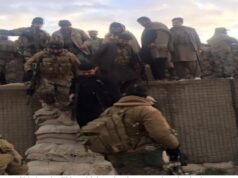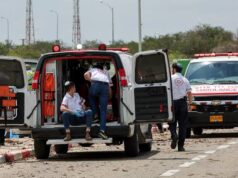Develop Military Into ‘Future Force’: PM Modi To Combined Commanders

Every Indian is very proud of our armed forces. Their courage is remarkable. Urged the armed forces to think about various reforms that would make the forces even stronger. Also discussed ways to integrate brave veterans in the celebrations to mark 75 years of Independence, the prime minister said in a tweet.
Noting that the country will be celebrating 75 years of its independence next year, the PM asked the military brass to use the occasion to undertake activities that inspire the country’s youth. He also said “brave veterans” should also be involved in the celebrations.
Speaking on the concluding day of the Combined Commanders’ Conference at Kevadia in Gujarat, the PM asked the three services to rid themselves of legacy systems and practices that are no longer relevant. He also appreciated the “resolute dedication” shown by the armed forces over the past year while dealing with the challenging situation on the northern border and also the Covid-19 pandemic.
Addressing the country’s top military leadership in Kevadia, Gujarat on Saturday, Prime Minister Narendra Modi highlighted the need to develop the Indian military into a “future force” in the backdrop of the swiftly changing technological landscape, break down civil-military silos and expedite decision making, the Prime Minister’s Office (PMO) said in a statement.
Issues discussed during the conference included a review of the country’s security situation at a time when India’s borders with China and Pakistan are in focus, the military’s operational readiness, the ongoing theaterisation plans and aspects related to modernisation and indigenisation, officials familiar with the matter said, asking not to be named.
Chief of defence staff (CDS) General Bipin Rawat briefed the PM about the discussions that took place during the three-day conference.
The PM stressed the importance of enhancing indigenisation in the national security system, not just in sourcing equipment and weapons but also in doctrines, procedures and customs, the statement said. The PM also told the top commanders to optimise manpower planning in both military and civilian parts of the national security architecture.
“The Combined Commanders’ Conference at Kevadia was a fruitful one. There were extensive deliberations on various strategic subjects. Highlighted the need for making India Aatmanirbhar in the defence sector and reiterated the Government’s support for it,” the PM tweeted.
The PM’s remarks during the top conference are extremely relevant in terms of how the military must develop going forward, said former Northern Army commander Lieutenant General DS Hooda (retd). The focus on technology, rethinking reliance on legacy systems, and indigenisation is absolutely vital, he said.
“The PM’s call for a review of civil-military structures is also addressing an area that has hobbled a cohesive national approach to strategic planning. The one area I would be cautious about is the message to indigenise procedures and customs followed by the armed forces. Current military customs and traditions have created a powerful ethos in our military that does not need any unnecessary tinkering,” Hooda said.
The conference was held at a time when India and China are negotiating disengagement in eastern Ladakh and the military is putting finishing touches to its theaterisation plan. It also comes on the back of Indian and Pakistani militaries announcing that they had begun observing a ceasefire along the Line of Control from the midnight of February 24.
The scope of the conference was expanded this year to make it “a multi-layered, interactive and informal event”, with the added participation of 30 officers and soldiers of various ranks from the three services. Middle-rung officers, junior commissioned officers (JCOs) and non-commissioned officers (NCOs) took part in the conference for the first time.
The prime minister appreciated the inclusion of the JCOs and the NCOs in this year’s conference.
The military’s theaterisation was one of the key topics discussed at the conference, HT has learnt. On the eve of the conference on March 4, chief of defence staff General Bipin Rawat said India’s military leadership will have to more than match the political vision that has mandated the creation of theatre commands. He said service parochialism will have to make way for a combined services outlook to take theaterisation forward.
The Air Defence Command and the Maritime Theatre Command are set to be launched by May. India is expected to have three other integrated commands to secure its western, northern and eastern fronts – these will be rolled out by December 2022. In addition, a logistics command is in the works to avoid duplication of efforts and resources.
The conference was attended by defence minister Rajnath Singh, the CDS, the three service chiefs, secretary-ranked officers from the defence ministry and top military officials.
The conference was traditionally held in Delhi till 2014. In the past, it has been held on India’s solitary aircraft carrier INS Vikramaditya, Indian Military Academy, Dehradun and Air Force Station, Jodhpur.




